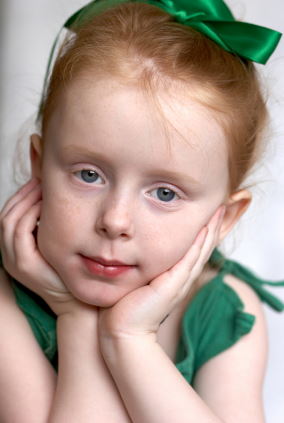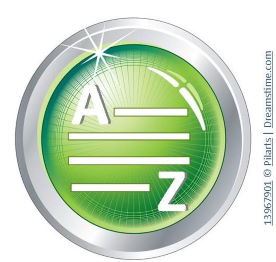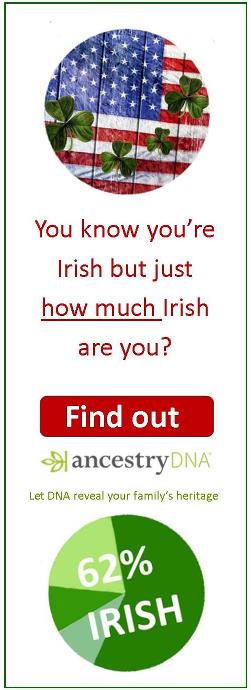- Home ›
- Irish Names ›
- Irish girls names, A-D
Irish girls names, A - D
During the 18th and 19th centuries, hardly any old Celtic/Irish girls' names were in use and most parents chose from a restrictive list, usually limited to the names of saints. So, in terms of those beginning with the letters A to E, there were countless little girls called Anne, Bridget, Catherine, Ellen/Eleanor. All religions embraced these names, and all social classes.
 Dearbhorgaill: a beautiful name for a beautiful child
Dearbhorgaill: a beautiful name for a beautiful child Dearbhorgaill: a beautiful name for a beautiful child
Dearbhorgaill: a beautiful name for a beautiful childBut if you come across ancestors with the names Elizabeth, Esther, Barbara, Diana, Edith, Caroline and Charlotte, you'll likely find they were Protestant, and probably at least reasonably well-off.
A Celia, however, would have been Catholic and upper-class.
You may notice in the list below of Irish girls names that old names spelt with a K in English are spelt with a C in Irish. This is because there is no letter K in the Irish alphabet.
With each of the names I've given an approximate pronunciation. However, knowing a few basics about the Irish language may help you to understand some of the more outrageous spellings and to unravel the pronunciation for yourself.
There are certainly some letter combinations that are alien to English. Just look at the delightful name Dearbhorgaill. It's a great example of a name that is guaranteed to stump the native English-speaker.
More Pronunciation Tips:
Mh, like bh, is usually v, sometimes w.
Dh, fh and gh are usually silent (take a look at Brighid below)
Sh and th are pronounced h or silent (see Cobhaith below).
Ch is gutteral, as in Bach.
C is always hard as in cat (not cigar).
S is pronounced sh before an e or i.
The accent above some vowels is called a fada, which means 'long'. It's a clue!
More Pronunciation Tips:
Mh, like bh, is usually v, sometimes w.
Dh, fh and gh are usually silent (take a look at Brighid below)
Sh and th are pronounced h or silent (see Cobhaith below).
Ch is gutteral, as in Bach.
C is always hard as in cat (not cigar).
S is pronounced sh before an e or i.
The accent above some vowels is called a fada, which means 'long'. It's a clue!
Just the sight of the 'bh' is enough to confuse. Well, if you know that 'bh' and 'mh' are usually pronounced 'v', you'd be off to a flying start.
The first syllable, however, is not 'dear' as in 'Dear John', but 'dar'. This is because 'e', which is usually pronounced as in 'bet', is silent when it appears before an 'a'. So the first six letters, make up 'darv'.
The second syllable appears simple enough but don't overdo that 'o'. It should be pronounced lke the 'u' in 'put', giving you more of a soft 'er' sound than an 'or' sound.
Moving to the end of the final syllable, and it is the turn of the 'a' to be silent to give you 'gill'. Putting the emphasis on the first syllable and running the three elements together, you have Darv-er-gill.
| Irish Name | Pronunciation | English equivalent | Meaning or Origin |
| Ailbhe | Al-veh | A unisex name dating back to the 11th century, one of the best-known bearers was the daughter of the fairy king, Midir | |
| Aileen | Ay-leen | Eileen | Means little noble one. |
| Áine | Awn-ya | Anna | A very common Irish baby girl name from 1300-1500. It's been revived as a solidly popular name since the 1990s. |
| Aobhinn | Ee-vin | The name of a number of princesses in the Middle Ages, it means beautiful sheen. Returning to popularity in modern times, it entered the top 100 for the first time in 2006. | |
| Aoife | Ee-fa | Eva/Ava | In legend, the evil second wife of King Lir, who was turned into a crow as punishment for her jealousy. One of the most traditional Irish names, it means beautiful or radiant, and it topped the baby girl's list in 2000. |
| Betha | Bay-thah | Means life (as in Uisce Beatha = water of life = whiskey). | |
| Briana | Bree-an-ah | The female version of the all-time popular name of Brian. | |
| Brighid | Breed | From the Irish 'brigh', meaning high or powerful, this was the name of the most important Celtic goddess. | |
| Brigid/ Brigit | Bridge-id/it | Bridget | A common Irish girls name in modern times with many pet forms including Biddy, Bridie, Dina and Delia. It dates back only to medieval times. |
| Caitlín | Kate-lin | Katherine | A pet form of Catríona. |
| Cara | Car-ah | Kara | Means friend in Irish. |
| Catríona | Coh-tree-nah | Katherine/ Kathleen | Meaning dark, this is the feminine form of Ciarán. For the first time in ten years, it fell just outside the top 10 most popular Irish girls names in 2007. |
| Cobhlaith | Kov-lah | One of the oldest Irish girls names, of uncertain meaning, dating from the 8th and 9th centuries. | |
| Dáire | Dah-rah | Dara | A unisex name meaning fruitful, it occurs regularly in Irish legends. |
| Damhnait | Dav-nit | Dympna | Meaning little deer, among its most famous holders was the wife of a king of Munster, Áed Bennán. |
| Dearbhail | Dar-vil | Dervla | Known as far back as the 7th century, the name may have meant 'daughter of Fál' (Fál being the legendary name for Ireland). |
| Dearbhorgaill | Dar-vor-gil | Means daughter of Forgall, a god. A well-known bearer of the name was the wife of Tigernán Ó Ruairc, king of Breifne, who eloped with Dermot, king of Leinster. | |
| Deirdre | Deer-dreh | Deirdre | Of uncertain origin, this is the name of one of the most tragic heroines of Irish legend: Deirdre of the Sorrows. |
| Duibheasa | Duh-vee-sah | A fairly common name in the early medieval period, it means dark lady of the waterfall. | |
| Duibhghiolla | Duh-vil-ah | A wife of high king Donnchad mac Flaind bore this name in the 10th century. It means dark lady of Lemain. |
Top Irish girls names in 2020
A - D
(Republic only)
The list below shows the popularity of first names chosen for new-born infants as recorded in Ireland's (civil) register of births in 2020. The information was provided by the Central Statistics Office, cso.ie, in its annual press release.
The number beside each name reflects its placement in the top 100 Irish girl names ie its popularity ranking.
Abbie 90
Abigail 64
Ada 37
Ailbhe 60
Allanah 74
Alice 33
Amber 66
Amelia 6
Amy 80
Anna 14
Annie 53
Aoibhín 67
Aoife 24
Aria 74
Ava 5
Bella 74
Bonnie 41
Caoimhe 27
Cara 36
Charlotte 49
Chloe 17
Ciara 48
Clara 60
Clodagh 46
Cora 90
Croía 95
Daisy 77


